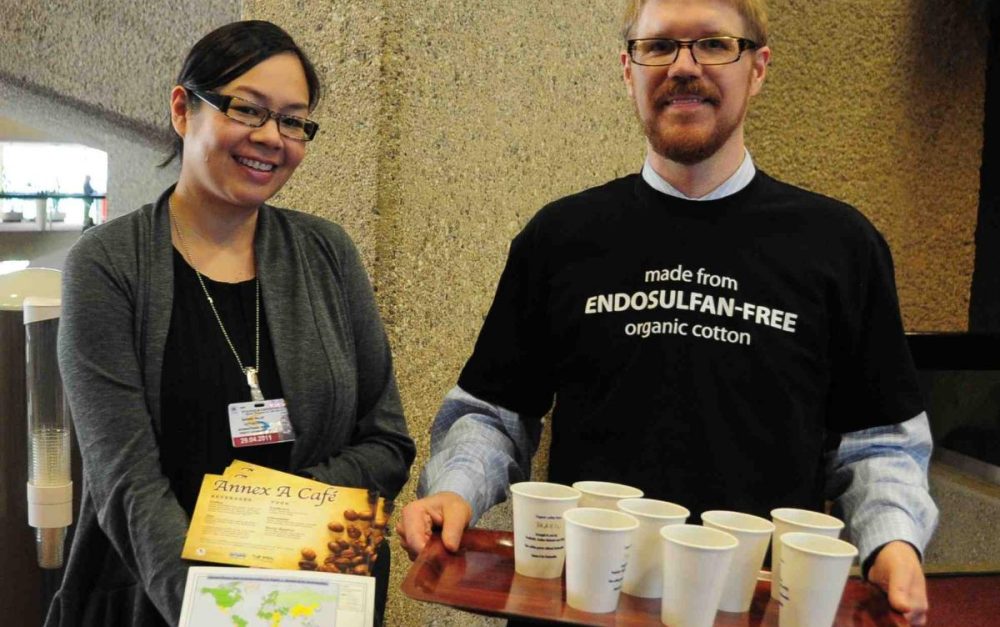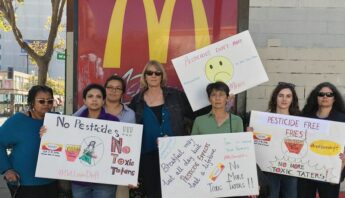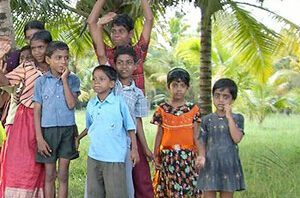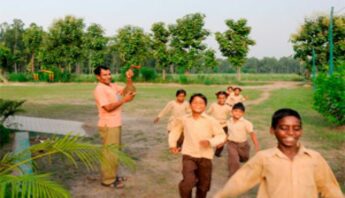Geneva, April 29: I am extremely pleased to report that the Parties to the Stockholm Convention have just agreed to phase out endosulfan globally! This is a huge victory for PAN and our partners around the world, most especially our civil society colleagues in India who have worked tirelessly to make this happen.
The final decision has a few loopholes (they almost always do), allowing endosulfan to be used on certain crops against some specific pests for the next six years. But we’re nonetheless very happy, and I’m certainly relieved. The loopholes (“specific exemptions” in the language of the treaty) were a necessary, if unfortunate, compromise needed to get India to agree to the ban. Still, most uses will end next summer, with a short list winding down through 2017. And then that’s it: no more endosulfan.
I must admit that I’m somewhat amazed that India relented and agreed to adding endosulfan to the Convention. Given their behavior in all the previous meetings, I had expected that they would block consensus and force the meeting to a vote—something that would have been unprecedented. If the Parties voted, they surely would have voted in favor of a ban, but it’s an open question as to whether they actually would take a vote, given all countries’ deep resistance to voting.
In my evaluation two things were critical in bringing India around. One was a pledge from developed countries to provide financial assistance to developing countries for phasing in alternatives as endosulfan is phased out. But that was always in the offing—few decisions taken here don’t come with money for developing countries. But the other factor, and the one which I think pushed India over the edge, is the massive global campaign mounted by civil society groups around the world—Indigenous peoples, the International POPs Elimination Network, PAN groups on five continents, and especially our colleagues in India.
Monday, as the opening gavel fell here in Geneva, VS Achuthanandan, the Chief Minister of the state of Kerala, led a fast against endosulfan. (The use of endosulfan on cashew plantations in Kerala caused terrible suffering there, leaving thousands with birth defects, developmental delays, and other maladies.) All week long—and in the months leading up the meeting—activists in India have been staging actions, talking to the media, and petitioning the government calling for a national ban and for India to support a global ban. And today, there was a general strike in Kerala to support a ban.
Thanks to these resourceful and persistent activists, and in particular Jayan Chelaton from Thanal, a PAN partner group based in Kerala, India could no longer insist on continuing to use endosulfan. As Jayan said in our joint press release,
This is the moment we have been dreaming of. The tears of the mothers of the endosulfan victims cannot be remedied, but it will be a relief to them that there will not be any more people exposed to this toxic insecticide. It is good feeling for them. We are happy to note that this is also victory for poor farmers, as this proves people united from all over the world can get what they demand.







